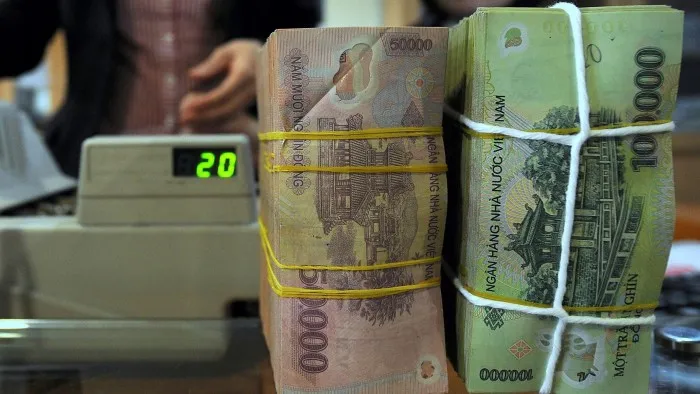
JOURNALIST: - Dr. Hiếu, how do you anticipate the U.S. and global economies will change now that Donald Trump has been elected President?
Dr. NGUYỄN TRÍ HIẾU: - Based on Trump’s campaign promises, we can expect significant shifts during his term. These changes may affect markets such as stocks, real estate, commodities like gold, foreign currency, cryptocurrencies, and U.S. trade.
While Trump’s policies might not have a direct impact on financial, real estate, or stock markets, they can lead to indirect consequences, especially if there are abrupt shifts in monetary policy. In his previous term, U.S. public debt soared, which influenced interest rates, inflation, and the financial market. His administration also took a skeptical stance on climate change, favoring traditional energy sources like oil and gas over renewable alternatives. Most notably, Trump emphasized a strong "America First" trade policy, with measures aimed at reducing the U.S. trade deficit. His administration prioritized American goods and sought to bring American businesses back to the U.S., even if it meant imposing significant tariffs on imports from countries with trade surpluses with the U.S.
One of his most significant targets was China, with suggestions of imposing tariffs as high as 60% on Chinese imports. While Trump has not specifically singled out Vietnam, it’s clear that the country, which has one of the largest trade surpluses with the U.S., could be affected by similar measures.
- What specific challenges do you foresee for Vietnam in light of these potential policies?
- If Trump follows through with his plan to raise tariffs on imported goods, Vietnam will undoubtedly face difficulties. It’s important to note that while these tariffs target foreign countries, American consumers ultimately bear the costs if they continue buying those goods. This scenario is particularly challenging for Vietnamese exports—agricultural products, seafood, and consumer goods—that already face stiff competition from other countries. If Vietnamese goods are hit with higher tariffs, U.S. consumers may turn to alternatives, leading to a decline in Vietnamese exports.
During Trump’s previous term, Vietnam was placed on a currency manipulation watchlist. The U.S. Treasury Department assesses countries based on three criteria: a bilateral trade surplus of at least $20 billion with the U.S., a current account surplus of at least 2% of GDP (now updated to 3% of GDP), and evidence of one-sided intervention in the foreign exchange market over a sustained period. In the past, Vietnam met two of these criteria but not the third, which involves net purchases of foreign currency equivalent to at least 2% of GDP over a 12-month period.
If Trump revisits the issue of currency manipulation, Vietnam could once again find itself under scrutiny. In 2023, Vietnam’s trade surplus with the U.S. reached about $100 billion, making it the third-largest surplus after China and Mexico. To mitigate the risks, Vietnam might need to increase imports from the U.S. or diversify its export markets to reduce its reliance on American consumers.
Regarding the exchange rate, Vietnam has consistently emphasized to the U.S. that it does not deliberately devalue its currency to gain an export advantage. Many other factors influence exchange rates, including global market conditions. The State Bank of Vietnam (SBV) will need to closely monitor the movements of the USD in the coming months.
If the USD continues to appreciate, the USD/VND exchange rate will have to follow suit. However, if the VND depreciates too much against the USD, it might fulfill the third criterion for currency manipulation. Conversely, if the USD weakens and the exchange rate falls, Vietnam could balance its large imports from the U.S., easing pressure on domestic importers and mitigating risks of manipulation accusations.
- Following Trump’s election, we’ve seen a significant drop in gold prices. What explains this sudden shift?
- Typically, gold prices rise when global crises trigger investor anxiety, as gold is viewed as a safe-haven asset. However, after Trump’s election, investors seemed optimistic about his economic and foreign policies. Instead of seeking safety in gold, they moved into other investment channels, particularly stocks, which caused stock prices to rise and gold prices to drop.
This trend was mirrored in Vietnam, where gold prices also declined. However, it’s worth noting that the drop in Vietnam’s domestic gold market was more abrupt and peculiar compared to global movements. This suggests that local factors may have also played a role, possibly linked to shifts in investor expectations or speculative activities.
Vietnam must be prepared for a potentially turbulent period. As Trump’s policies begin to take shape, they could alter trade dynamics, not only between the U.S. and Vietnam but also with other major economies. For Vietnam, navigating this environment will require a multifaceted approach.
First, Vietnam should engage in proactive diplomacy with the U.S., particularly if Trump prioritizes reducing trade deficits. Developing strategies to increase imports from the U.S., especially in sectors where American goods are competitive, could help rebalance the trade relationship. Vietnam might also look to explore new export markets to diversify its economic dependencies and reduce vulnerability to U.S. policy changes.
Second, Vietnam’s central bank will need to remain vigilant about exchange rate policies. Any perceived manipulation could lead to retaliatory measures from the U.S. Maintaining a balanced approach that reflects market conditions while avoiding abrupt fluctuations will be critical.
Lastly, the government may need to focus on fostering domestic resilience. Encouraging growth in key sectors—such as technology, agriculture, and manufacturing—could help Vietnam maintain steady economic performance, even if global conditions become less favorable. Developing infrastructure, investing in education, and supporting innovation are crucial steps to ensure long-term stability.
The return of Donald Trump to the U.S. presidency signals a potential shift in global economic policies that could impact Vietnam. The threat of tariffs and the possibility of being labeled a currency manipulator are genuine concerns. However, with careful planning, proactive diplomacy, and strategic economic adjustments, Vietnam can navigate these challenges and continue its economic development.
- Thank you very much.




















